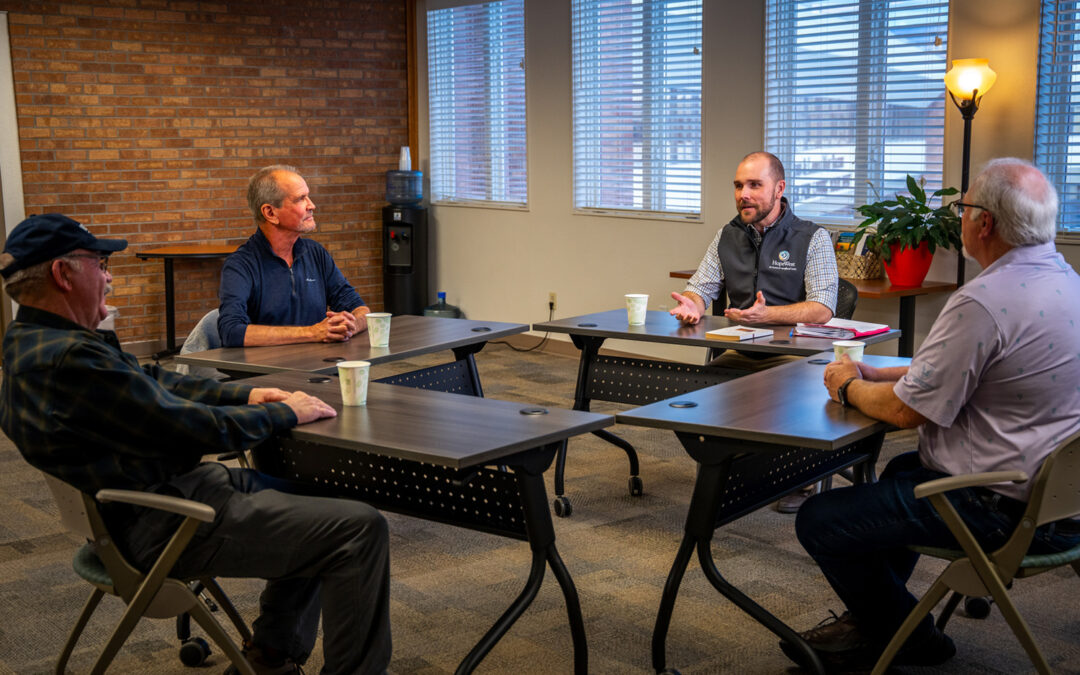Some of the quiet, everyday heroes among us are the family and friends who serve as dedicated caregivers to loved ones. Kevin Watt, HopeWest Chaplain, joins us for a Q&A celebrating the resilience and compassion of caregivers, offering insights and helpful advice for those who provide physical and social support to those in need.
Can you share a bit about your role as a HopeWest chaplain, especially your work with family caregivers?
As a chaplain at HopeWest, I get the wonderful privilege of supporting the spiritual health of patients and their families. My work focuses on helping people experiencing the pain of uncertainty and grief identify and grow sources of meaning, love, and consolation.
When I support the work of caregivers, I will often provide counseling or emotional support to help them explore difficult or complex feelings, offer education on practices and principles of resilience and self-care, and provide rituals and ceremonies to celebrate milestones or help bring closure.
What advice do you have for caregivers who might feel overwhelmed by the physical and emotional challenges of caring for loved ones with serious illness?
Caring for another is a remarkably generous act, but it is also remarkably demanding. The physical fatigue that many caregivers experience is compounded by the emotional pain and persistent exhaustion they often feel too.
The most important thing to remember as a caregiver is that we can only care for others if we get the care we need too. Many loving caregivers forget they are worthy of care and neglect maintaining healthy diets, sleep patterns, important friendships, and even routine medical care. Sadly, this ultimately leads to them being unable to continue caring for the person they love.
The best thing you can do for the person you are caring for is to make sure you are taken care of. Share your feelings and needs with people that have earned your trust. Family and friends, church or neighborhood communities, and your hospice team can be incredible sources of support. Sometimes, just getting time to take a shower by yourself, having a neighbor drop off dinner, or taking just 15 minutes to quietly enjoy a warm cup of tea can make all the difference.
In what ways can caregivers foster a deeper connection with the person they are caring for, especially when facing communication barriers due to illness or age?
There are many ways that caregivers can foster a deeper connection with those facing illness or age-related communication challenges. The most common challenge I see is difficulty understanding verbal communication. As such, it’s important to remember that most communication is non-verbal.
The 7-38-55 rule hypothesizes that only 7% of communication is done verbally. The tonality of our voice makes up 38% of what is communicated and the remaining 55% comes from our body language. Non-verbal communication, like maintaining eye contact, using facial expressions, and incorporating gestures, can help convey emotions and information to those struggling to understand us verbally.
Physical touch, like holding hands or giving a hug can help provide a sense of closeness and safety. Caregivers can also communicate through other senses. Filling the house with familiar smells, music, or cooking favorite meals can communicate love, comfort, and a sense of wellbeing for those being cared for.
What tips do you have for those who feel isolated or alone in their caregiving journey?
Above all, I hope that all caregivers know they don’t have to do this alone. Trusted organizations can help when loved ones are facing extreme health challenges and end-of-life situations.
On the Western Slope, HopeWest offers not only hospice care for those nearing end-of-life, but also palliative care for people needing support while dealing with serious illness, PACE for providing support services to help seniors stay safely at home, and bereavement counseling and support groups for adults and kids.
These services lighten the load on caregivers and provide resources and education that help them focus on and enjoy spending time with their loved one while caring for their own personal health.










